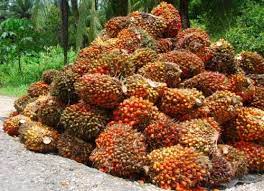[FEATURES] Oil Palm: As Solidaridad Ensures Nigerian Farmers Meet EU Products Standard
Articles/Opinion, Featured, Latest Headlines Wednesday, August 21st, 2024
(AFRICAN EXAMINER) – Since the discovery of crude oil in Nigeria in the 50s, both present and successive administrations at all levels of governments, have deliberately neglected and relegated to the background the all important Agricultural sector which use to be the mainstay of the economies of some regions, and has the capacity to raise the nation’s current poor Gross Domestic product GDP to an enviable height as being experienced in the past.
Also Prior to the advent of crude oil in Nigeria, the economies of various regions, including Eastern Nigeria, were flourishing and bubbling courtesy of the dividends from the natural resources they had comparative advantage in and endowed with, especially Agriculture.
For most citizens, the discovery of crude oil in Nigeria, remains a curse, and not a blessing to the perceived most populous nation in the West African sub Saharan Africa, and acclaimed giant of the continent.
Such individuals also argue strongly that the oil boom in the country has done more harm than good to the entity called Nigeria.
It is on record that through proceeds from some of the God given agricultural money spinning natural products, such as oil palm in Eastern Nigeria, Cocoa in South West, past political leaders in these areas, in the 60s and 80s, transformed different sectors of their regional economies.
Such people’s leaders, and true democrats, left huge infrastructural legacies that still remain reference points till date in various regions.
In Eastern Nigeria, believed to be home of oil palm, the then premier in -charge of the region, the late Dr. Micheal Okpara, who is still till date rated as the best political leader ever produced in Igbo land, judiciously used funds realized from palm oil to impact seriously on the lives of the people, even as he put in place numerous human oriented legacy facilities in parts of the region.
Since the Okpara era, the oil palm sector in Eastern Nigeria and elsewhere has continued to remain in shambles, an ugly development that has created room for high cost of palm oil and other products from palm trees.
However, to God be the glory for the intervention of an international organization, named, Solidaridad, which is highly committed in salvaging the situation as well as changing the ugly narrative in Nigeria’s palm oil sector.
The group, with the Slogan! ‘Change that Matters’ has been in Nigeria for some years now, operating in four States of Cross River, Kogi, Enugu and Akwa Ibom, under it’s five year programme, being executed though the National Initiatives for Sustainable and Climate- Smart Oil Palm Smallholders (NISCOPS).
It has also made tremendous impacts in Nigeria via her other programmes which includes, the Sustainable Development Goals 1 (SDGP1), Aquaculture Development
Project Nigeria, (ADPN), Challenge Fund for Youth Employment (CFYE), and Nigeria Resilience Cocoa Farmers programme
Solidaridad, West Africa, with regional office in Accra, Ghana, is part of the organization’s network, an international Civil society groups that works through eight regional centres to make sustainability the norms and ensure that farmers, miners and workers earn a decent income, shape their own future, and produce in balance with nature by working throughout the whole supply, which is her mission.
It envisages a world in which “all we produce, and all we consume, can sustain us, while respecting the planet, each other and the next generation:, which is her vision, with the aim of bringing sustainable solutions to improve the Cocoa, oil palm, Aquaculture and gold supply chains in it’s operational countries.
The organization, which is equally an international solution-oriented group that works with relevant actors in the agricultural and non-agricultural sectors, promotes sustainable and inclusive commodity value chains across the globe, with the network secretariat in Utrecht, the Kingdom of the Netherlands.
In West Africa, Solidaridad operates in Liberia, Ghana, Sierra Leone, Côte d’Ivoire, and Nigeria, with the regional office in Accra, Ghana. Her Country Office for Nigeria is in Enugu state with site offices in Calabar, Ijebu-Ode, Kano, and Kaduna states.
To improve the competitiveness and sustainability of the palm oil sector in Nigeria and make farmers standard ready with regards to the European Union EU Policy of Products, Solidaridad, under the Pathway to Prosperity project recently, on 15-16th, August 2024 to be precise, organized a two day capacity workshop for a total of 30 small and medium enterprises (SMEs) drawn from Akwa Ibom, Anambra, Cross River, Delta, Enugu and Kogi states.
The European Union EU, has set a deadline for deforestation-free oil palm production by 31st December 2024 towards sustainable production systems.
The workshop entitled: “Understanding Palm Oil Traceability, Branding and Marketing in Nigeria” held in Enugu, will support the SMEs to develop strategies for kickstarting palm oil traceability for smallholder farmers in their states of operation, develop marketing plans aimed at expanding Nigerian palm oil’s reach in domestic and international markets.
It is also designed to make them understand effective branding that highlights the unique qualities of Nigerian palm oil and enhance the knowledge of participants on the importance and implementation of traceability systems in Nigeria’s palm oil supply chain.
Above all, one of the objectives of the workshop is to support farmers to meet the market requirements of the European Union Deforestation Regulation (EUDR) which has set a deadline for deforestation-free oil palm production by 31st December 2024 towards sustainable production systems.
Speaking with newsmen during the programme, Solidaridad Programme Manager, Mr. Kene Onukwube, disclosed that they are focusing on helping farmers to be standard ready ,stressing that the organization want to equip them with the relevant standards so that they will comply with any policy or regulation particularly on Oil Palm.
He said: “The compliance or policy related issues for now is the issue of how farmers can be ready for the European Union Regulation of Deforestation. That policy for Nigeria is starting with issues around Cocoa compliance, however, many of the landscapes where Cocoa grow can also grow oil palm.
“We have a lot of farmers who do both, so whether it is Cocoa or oil palm, we have decided to get our small holder farmers ready so that should the EU open the page on compliance readiness of smallholder farmers, we will be sure that our farmers are already proactive right from the community level to the state or national level. The target audience here is the small and medium enterprises.”
He noted that Small and Medium enterprises play a key role in sustainability, and should play a role to ensure compliance with the policy related issues in the oil palm chain.
Onukwube therefore warned that the price that farmers that fail to meet up with the EU regulation on deforestation will pay will be rejection of their products.
He added that the states have the number of SMEs that they are capaciting with and are expected to go back and organize capacity building with the groups they have already identified.
The programme Manager further explained that the workshop was organized to enhance participants knowledge on the importance and implementation of Traceability system chain in Nigeria, stressing that it was also aimed at developing strategies for kick-starting PO traceability for smallholder farmers in the aforementioned states.
“We are focused on helping farmers to be standard ready , we want to be able to acquaint them with the relevant standards they should comply with to be sure that any policy or registration of the commodity, oil palm particularly that they do not fall short of such standards and that they are able to comply with them .
He said Small and Medium enterprises play a key role in sustainability and should play a role to ensure compliance to the policy related issues in the oil palm chain
Onukwube, hinted that the price farmers who fails to meet up with the EU regulation on deforestation will pay will be rejection of their products
According to him, Participants, were drawn from six states of Akwa Ibom, Anambra, Cross River, Delta, Enugu and Kogi.
Related Posts
Short URL: https://www.africanexaminer.com/?p=97372






















